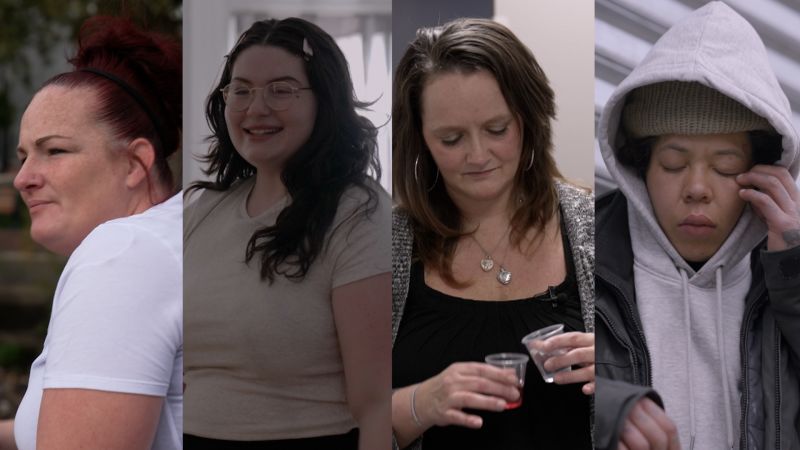
A way out: Life after fentanyl is full of hope and heartbreak for these four women
CNN
For the past two years, CNN has been documenting illicit fentanyl users, most of whom are in recovery. The adversity they face, both physical and mental, is enormous. What does it even look like to recover from abusing a street drug 50 times stronger than heroin?
“I was asked to give an update of myself for this documentary, and I wanted to throw up,” Crystal Quigley told CNN. In a letter dated March 9, Quigley, 39, said she had been sober for two years before relapsing on illicit fentanyl. Her anguish poured out onto the notebook pages she sent us. “I threw away all I had going for myself because I never felt worthy of my accomplishments,” she wrote. “In true Crystal fashion, I self-sabotaged … all because I didn’t know how to be comfortable sober.” But the reasons why she relapsed may be more complex. Two-thirds of Americans say that either they or a family member has been addicted to alcohol or drugs, been homeless because of an addiction, or overdosed and died from drug use. Statistically speaking, addiction has affected the lives of most people reading this. What also may hit close to home with readers is the complicated battle to fight it. Fentanyl is one of the most powerful synthetic opioids to have infiltrated the street drug supply. Since 2020, fentanyl overdoses have been the leading cause of death for American adults under 50. However, drug overdose death rates that had been soaring since 2018 have begun to drop in at least 45 states, according to the US Centers for Disease Control and Prevention.





















 Run 3 Space | Play Space Running Game
Run 3 Space | Play Space Running Game Traffic Jam 3D | Online Racing Game
Traffic Jam 3D | Online Racing Game Duck Hunt | Play Old Classic Game
Duck Hunt | Play Old Classic Game